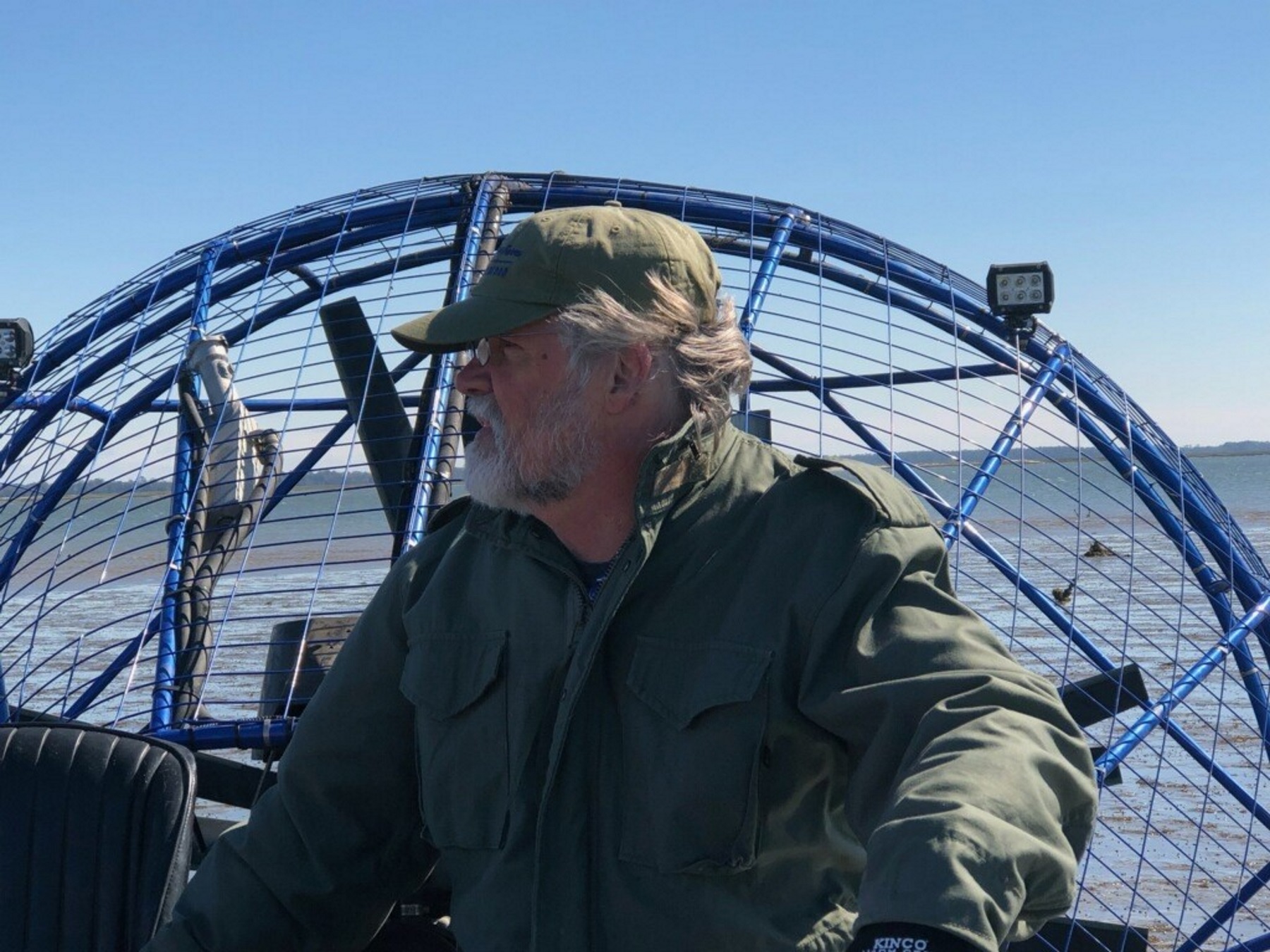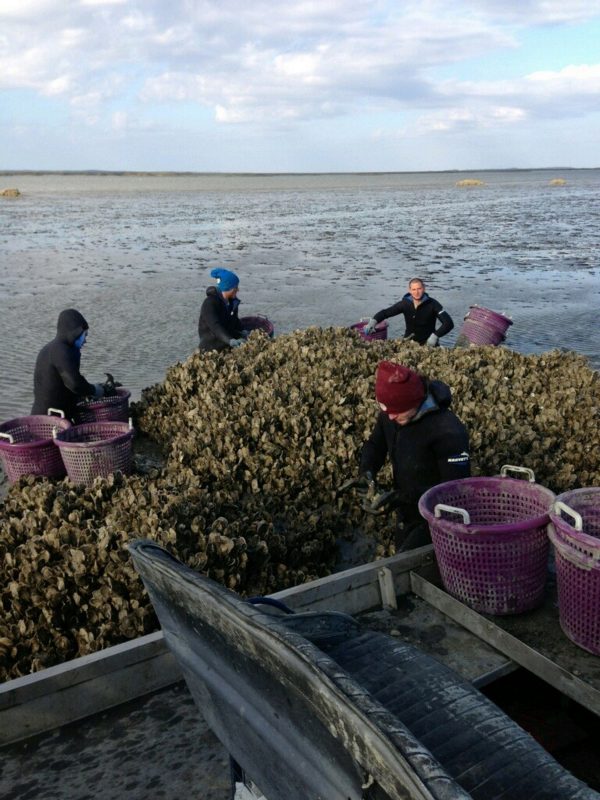A Ga. Bill To Create An Oyster Industry Passes, But To Some, It’s Not That Simple

Charlie Phillips, who owns Sapelo Sea Farms in Townsend, Georgia, has been growing clams and harvesting wild oysters on the coast for decades. However, he isn’t interested in expanding into growing oysters under a new Georgia bill.
Charlie Phillips
The General Assembly passed a bill, HB 501, on Monday that supporters say would revive an oyster industry in Georgia. A century ago, the state had a vibrant one.
But opponents argue the bill will stifle the renewed industry before it can even grow.
Charlie Phillips owns Sapelo Sea Farms in Townsend, Georgia, and said it’s too “restrictive.” He has been growing clams and harvesting wild oysters on the coast for decades and was interested in expanding into growing oysters as well.
But now that this bill has passed, he said he won’t even try.
He said the bill’s regulations are also too murky and won’t set Georgia oystermen up for success, though he said he believes the Department of Natural Resources, which supports HB 501, has good intentions.
For example, there are restrictions on when oysters can be harvested. Since people eat them raw, the department is worried about allowing summer harvests outright.

Doug Haymans runs the department’s Coastal Resources Division and testified before a Senate committee about the bill.
“Consuming raw shellfish is probably one of the most dangerous things you’ll ever want to consume. So we need to have proper safeguards in place,” he said.
The bill doesn’t completely prohibit harvesting in the summer. It requires permission to do so. Wes Robinson, director of public affairs at the department, said that’s to ensure water quality is “up to par” before authorizing the year-round harvests.
But that’s not enough to encourage investors, Phillips said, since everyone else in the market harvests for 12 months. “I’m not going to spend $100,000 – $200,000 and not be able to compete with people from South Carolina and Florida. Not interested.”
“I’m not afraid of competing,” he said. “But I’m not going to go into business with one hand tied behind my back.”
There’s also a limit on how many people can get a growing permit under the new code, and they’d be chosen by a lottery.
“This is indeed farming oysters, but the finite resource is the space itself: the water columns in which you would harvest oysters,” Robinson said. “That’s a public resource. Those waters are owned by me and you.”
But Phillips said the lottery idea is arbitrary, and it would be better to award the permits to those most deserving.
“Not just put it up for grabs on whoever’s lucky. Some of the farmers that are picking wild oysters now, they’re concerned they may not be the lucky one that gets the lottery ticket.”
He also said it could backfire because people will see the risk of investing in the lottery application process on the front end and not ending up with a lucky ticket. So they won’t even try.
Bryan Rackley is one of the owner-operators and shellfish manager of Kimball House and Watchman’s Seafood and Spirits in Decatur and Atlanta. He has one Georgia oyster on the menu and wants more.
He’s also skeptical of the bill, and skeptical of the lottery idea.
“It’s a negative incentive for people who are thinking about this as a new way of life,” he said.
Generally, he said, oystermen need more information from the department.
“People are going to celebrate the fact that an oyster bill has passed, but I don’t know that it’s effectively going to mean anything,” he said. “And that’s where some clarity would be helpful. And that’s why I think a lot of farmers that potentially would want to get in the water are apprehensive about this and pretty much against this legislation because they feel like it’s not the start that they need to make any progress.”
Rackley said he’s considered entering the oyster-growing sphere, but Georgia wouldn’t be his first choice as it stands.
“It’s almost more attractive to be in the Florida lease system because you can get into it with less money, and it seems to be it’s an easier place to grow oysters at this point.”
He is hopeful though, that the department will clarify some of the murkiness as the regulations continue to evolve.
“To me, we’re really not far apart in who’s right and who’s wrong. I just think we need a little bit more explanation,” he said. “And I think that that would go a long way.”
Robinson with the department said it’s common in most legislation for details to be worked out afterward through the department’s board. He said that board, in turn, will work with a shellfish advisory panel comprised of different stakeholders, including the industry.
Opponents argue that the panel won’t be as effective if it’s reporting directly to the department without independence.
Rep. Jeff Jones from Brunswick agrees the bill is flawed. Jones has been working on the issue since the summer and introduced his own competing bill, HB 565, but the Department of Natural Resources did not support it.
“The language in HB 501 is so loose and nonspecific as to make it not a worthwhile industry for producers to participate in,” Jones said. “I want to see oyster mariculture grow in the state of Georgia. But I want to do so in a way that those people who are actually going to be producing this product can do so and make a dollar out of it and do so safely.”
But Rep. Jesse Petrea from Savannah defends his bill. He said in committee it’s better to be cautious.
“My friends, we’re creating a new industry. We have to be careful that we do this right and we do not fail,” he said. “We can give that a chance or we just assume the sky is falling like the representative [Jones] believes and this is going to fail. I believe that he is wrong.”
He said lawmakers will be watching closely whether or not the oyster industry will grow in Georgia.
“We just need to get the oyster industry started. And later on if there need to be any changes,” said Rep. Don Hogan who supported both Jones’ and Petrea’s bills. “We just need to get it going. It’s just that simple.”








